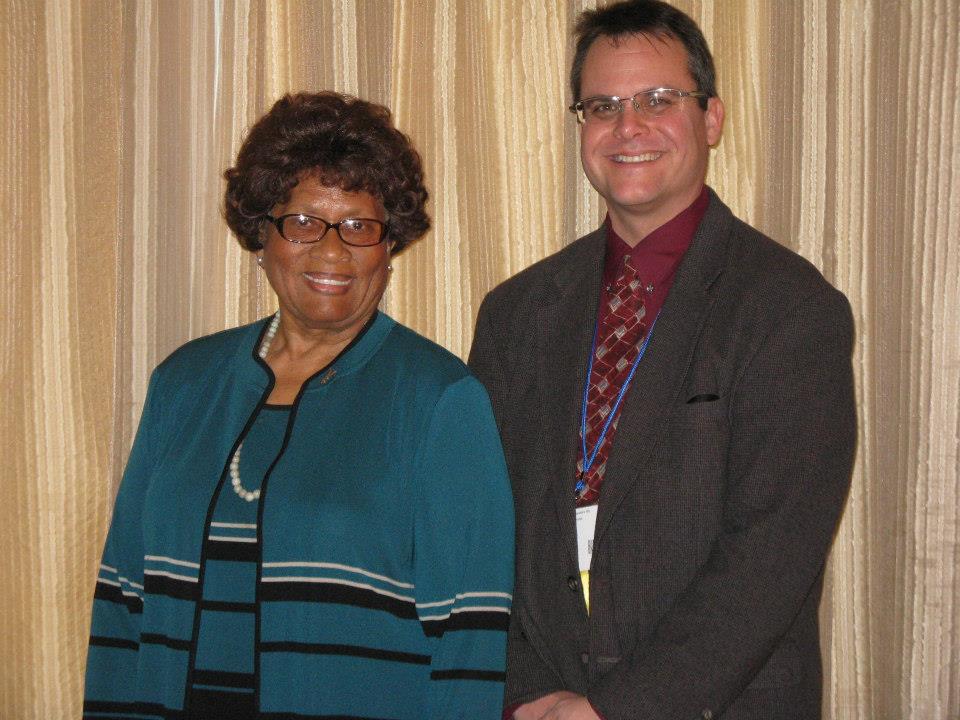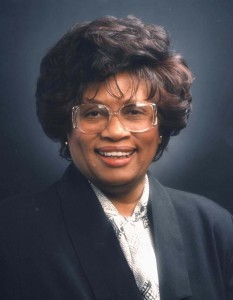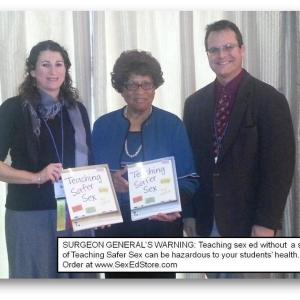Joycelyn Elders, the first person in the state of Arkansas to become board certified in pediatric endocrinology, was the sixteenth Surgeon General of the United States, the first African American and only the second woman to head the U.S. Public Health Service. Long an outspoken advocate of public health, Elders was appointed Surgeon General by President Clinton in 1993. During her fifteen months in office she faced skepticism regarding her progressive policies yet continued to bring controversial issues up for debate. As she later concluded, change can only come about when the Surgeon General can get people to listen and talk about difficult subjects. Dr. Elders left office in 1994 and in 1995 she returned to the University of Arkansas as a faculty researcher and professor of pediatric endocrinology at the Arkansas Children’s Hospital. In 1996 she wrote her autobiography, Joycelyn Elders, M.D.: From Sharecropper’s Daughter to Surgeon General of the United States of America. Now retired from practice, she is a professor emeritus at the University of Arkansas School of Medicine, and remains active in public health education.
Read our interview with Dr. Elders on her thoughts of sex education and what she’s likes about retirement.
This month, as part of Black History Month, we are celebrating Black Sexuality Educators. Dr. Joycelyn Elders was the first African American and second woman appointed to serve as U.S. Surgeon General.
Dr. Elders, it is an honor to interview you. Can you tell us what changes have you seen in the field of sexuality education since you served as Surgeon General?
We are able to discuss sexuality more openly in educational settings. We have better scientific information and it is more readily available. More schools and school boards are seeing the benefits of sexuality education. Sexuality is discussed more openly in other informal educational settings as well. Statistics are appealing to many.
Science has dispelled many myths; these new revelations are being spread.
During your time as Surgeon General you tackled issues like teen sexuality, abortion and STD prevention. What have you been working on more recently with respect to sexuality education?
Procreation, prevention and pleasure are all aspects of sex, and the most important is for pleasure. Shame needs to be removed from healthy sexuality. We also work on LGBT and gender equality issues in reproductive health and women’s reproductive health. I serve on several boards and commissions related to sexuality, such as Trojan Sexual Health Advisory Commission and Univ. of MN Program in Human Sexuality. We continue to work on teen sexuality, abortion and STD prevention.
You have said that “If [you] could make any changes at all to the current health care system, [you] would start with education…” What priorities do you think should be emphasized in today’s sex ed curricula?
Honesty, openness and scientific information need to be included in educational settings. Every person has a right to be educated about his or her own body with scientifically correct information while continuing to include pregnancy and disease prevention.
What do you do when you aren’t working professionally?
My family keeps me pretty busy. Also, I enjoy working in my garden growing flowers and a huge vegetable garden. Then, I freeze some of the produce and I make chow-chow for my friends and family. I seem to be in the kitchen a lot. I love to go out for Chinese food.
Well, Thank you Dr. Elders, it’s been a pleasure! You are such an inspiration. 
Dr. Joycelyn Elders has keynoted The Center for Sex Education’s National Sex Ed Conference. Here she is pictured with CSE executive director Bill Taverner.




